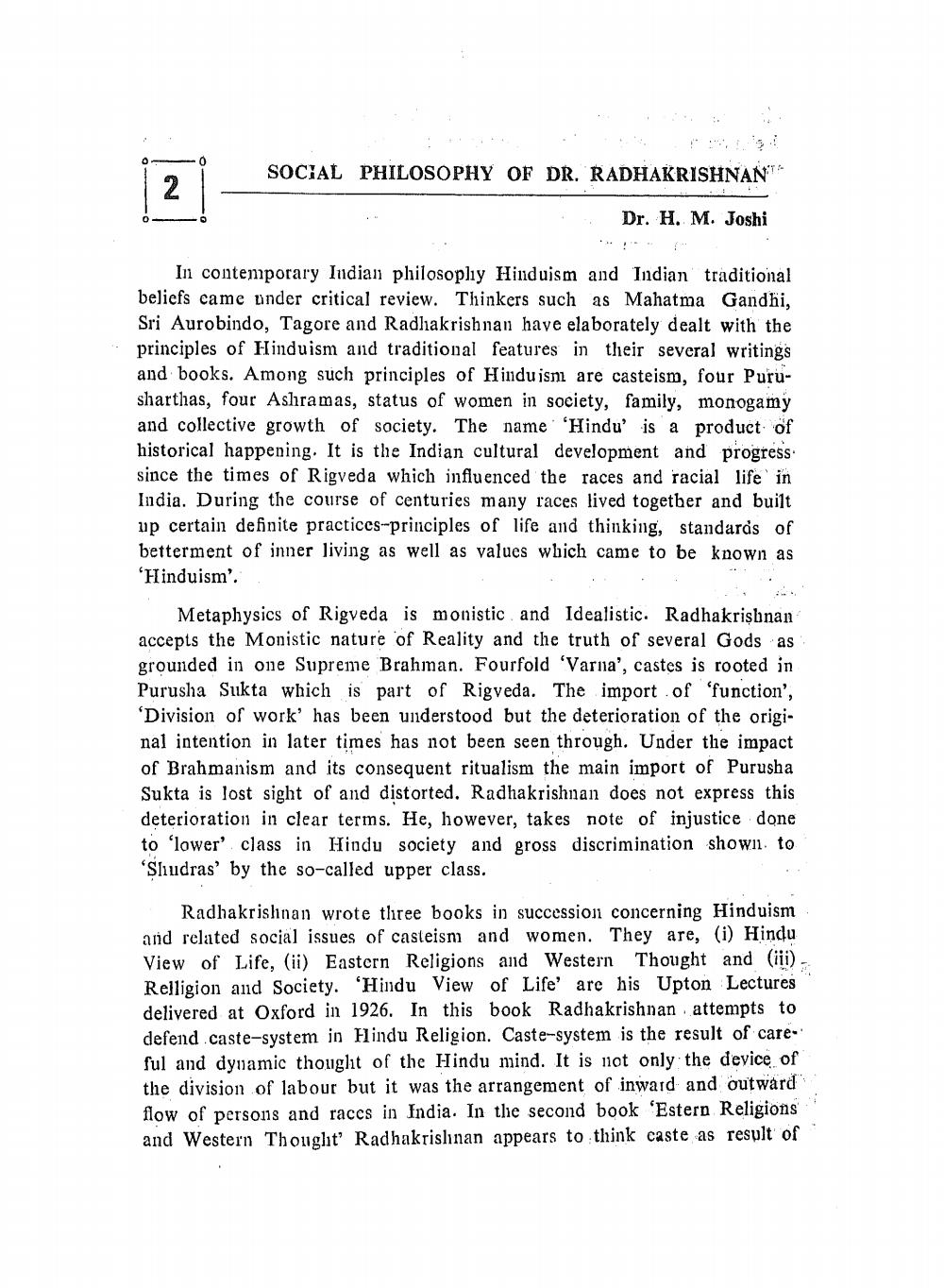________________
SOCIAL PHILOSOPHY OF DR. RADHAKRISHNANT
Dr. H. M. Joshi
In contemporary Indian philosopliy Hinduism and Indian traditional beliefs came under critical review. Thinkers such as Mahatma Gandhi, Sri Aurobindo, Tagore and Radhakrishnan have elaborately dealt with the principles of Hinduism and traditional features in their several writings and books. Among such principles of Hinduism are casteism, four Purusharthas, four Ashiramas, status of women in society, family, monogamy and collective growth of society. The name 'Hindu' is a product of historical happening. It is the Indian cultural development and progress since the times of Rigveda which influenced the races and racial life in India. During the course of centuries many races lived together and built up certain definite practices-principles of life and thinking, standards of betterment of inner living as well as values which came to be known as 'Hinduism'.
Metaphysics of Rigveda is monistic and Idealistic. Radhakrishnan accepts the Monistic nature of Reality and the truth of several Gods as grounded in one Supreme Brahman. Fourfold 'Varna', castes is rooted in Purusha Sukta which is part of Rigveda. The import of 'function', ‘Division of work has been understood but the deterioration of the original intention in later times has not been seen through. Under the impact of Brahmanism and its consequent ritualism the main import of Purusha Sukta is lost sight of and distorted. Radhakrishnan does not express this deterioration in clear terms. He, however, takes note of injustice done to flower' class in Hindu society and gross discrimination shown to Sluudras' by the so-called upper class.
Radhakrishnan wrote tlıree books in succession concerning Hinduism and related social issues of casteism and women. They are, (i) Hindu View of Life, (ii) Eastern Religions and Western Thought and (iii) - Relligion and Society. "Hindu View of Life' are his Upton Lectures delivered at Oxford in 1926. In this book Radhakrishnan attempts to defend caste-system in Flindu Religion. Caste-system is the result of care. ful and dyuamic thought of the Hindu mind. It is not only the device of the division of labour but it was the arrangement of inward and outward flow of persons and races in India. In the second book 'Estern Religions and Western Thouglit' Radhakrishnan appears to think caste as result of




